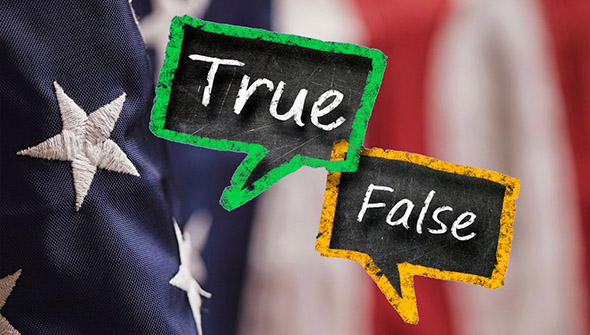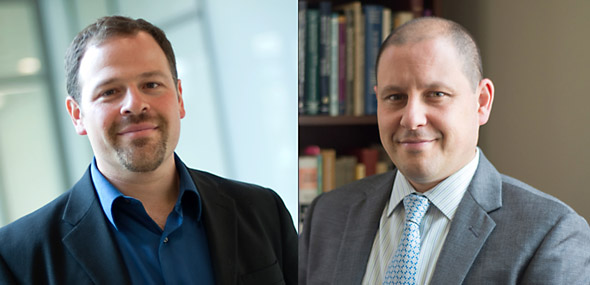Bringing Research Insights to Testy Conversations
-
-
slice.mit.edu
Filed Under
Recommended

How can you bear a colleague’s rant that disputes your own beliefs? Have US elections truly been compromised? What to do about the onslaught of misinformation calling itself news?
Finding middle ground in American politics is not easy these days. Can research-based conversations lead to better solutions? That’s the goal behind Mens et Manus America (MMA), a non-partisan initiative jointly sponsored by the MIT School of Humanities, Arts, and Social Sciences and the MIT Sloan School of Management. In a series of campus talks starting last winter, MIT faculty and guests have broached an array of social, political, and economic issues. The results have been packed lunchtime audiences and civil discourse.
“MIT is the perfect place to host these discussions,” said Professor Agustin Rayo, who is one of the initiative’s co-organizers. “On the one hand, we have faculty with real expertise on our country’s political, economic and social challenges. On the other, we have students who can help pave the way to a solution, by combining first-class research with MIT’s problem-solving culture.”
One challenge MMA addressed is the role of misinformation in politics.
In a May session, Can We Solve the Politics of Misinformation, two MIT faculty members shared their research.
“Rumors are not new. What’s new is how really widely they can spread,” said political science professor Adam Berinsky in an MIT SHASS Newsroom article. News and fake news speed along the Internet through tweets, blog posts, and partisan media sites and influence readers of all political spectrums. “It’s not that some people believe a lot of crazy things.” Rather, he said, “There are a lot of people who believe some crazy things.”
Berinsky did suggest two ways to confront the flood of misinformation: first, don’t repeat lies even to refute them. Second, find credible sources of information.
Ezra Zuckerman Sivan, Siteman professor of entrepreneurship and strategy, described insights from his research on the appeal of demagogues—even when they are blatantly lying.
“When subjects are made to believe they are part of a group being treated unfairly, they tend to prefer the lying demagogue more than the other guy,” said Zuckerman, another co-organizer of the MMA initiative. Listeners may recognize the lies, “but we appreciate his willingness to challenge the establishment that we hate.”
Rayo, the session moderator and a professor of philosphy, suggested that finding neutral sources of information may become more difficult as society becomes increasingly polarized.
Another challenge is how to debate complex questions such as the impact of tax reform. In October, James Poterba, the Mitsui professor of economics, provided a look at how the United States taxes individuals; Michelle Hanlon, the Howard W. Johnson professor and a Sloan professor of accounting, outlined America’s corporate tax system. In both cases, they say, increased taxes change behavior, generally reducing the activity that is taxed. Hanlon said corporations certainly behave that way. The current structure encourages businesses to keep cash in foreign subsidiaries to avoid paying taxes on earnings brought into the country. “Companies have a high incentive to shift income, to put income somewhere where the rate is lower,” she said.
Tax reform, however, is not usually a speedy process, they agreed. “The last really sweeping reform—a bill that had bipartisan support and changed both individual and corporate tax parameters—took place in 1986 under President Reagan,” Poterba said. “There’s been nothing like that since.” Watch a video of their talk and browse a sampler of views on current US tax reform plans.
Although tax reform is still in flux in Congress, the implications for the MIT community are profound. In a recent letter to the community, President L. Rafael Reif described potential impacts on graduate students, employees, and endowment income.
Visit the Mens et Manus America website for upcoming topics and read coverage of recent talks, such as the Power of Conversation in a Polarized World; Data, Technology, and the Integrity of Elections; and, coming soon, Good Jobs and Shared Prosperity in Rural America.








